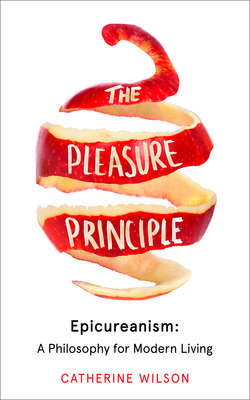Читать книгу How to Be an Epicurean - Catherine Wilson - Страница 18
The Mystery of Consciousness
ОглавлениеThe 17th-century philosopher René Descartes, who had no problem with the Epicurean account of the origins of plants and nonhuman animals, famously balked at taking the same view of humans. Where plants and animals are just unconscious material machines, human beings, he argued, are material machines that also possess an incorporeal, immortal soul that endows them with conscious awareness, free will and rationality. Each human soul must have a divine origin. Not only did this claim excuse him from having to try to explain consciousness, free will and rationality in mechanical terms, it enabled the rest of his basically Epicurean ‘corpuscularian’ philosophy to make it past some of, though not all, the censors. (Despite his extensive references to God and the incorporeal soul, his books were viewed with considerable suspicion and for a time appeared on the Index of Prohibited Books of the Catholic Church.)
Descartes’s official theory of the special human soul put him in good and extensive company. The majority of the human race believed in his time, and the majority still believes, that the soul is a something that lives in the body. The soul is thought of as a permanent, indestructible entity that can survive the death of the body. Not only can it survive, it can reattach itself to a new living body – either the resurrected body of the person who died, or one of their descendants, or an animal of another species – where it will continue to see, feel and think to the extent permitted by that body. The Epicurean of today will, however, insist that the soul is not able to detach itself from its original body or attach itself to another unensouled human body. My death, she supposes, will be the end of all my experience and thinking, and it will not be the start of some other being’s experience and thinking, except in the sense that some of the particles composing me may eventually find their way into another organism.
But if we don’t have immaterial and potentially immortal souls or minds, how can thought, experience and voluntary movement be explained? No one today can take seriously the idea of soul atoms. As we see it, there is something about how my living body is put together from individually lifeless and thoughtless particles that enables me to be conscious, aware of my environment, subject to pain, able to initiate actions, to reflect on myself and the world, to make plans and decisions, and to build and create. Nothing more than a brain, composed of molecules, which are composed of atoms, which are composed of subatomic particles, located in an animal body is needed for experience, thought and voluntary movement. And it is not a foregone conclusion that a brain is necessary for feeling and deciding. Other biological structures found in living beings, or even other structures or programs that could be placed into computers, might make thought and feeling possible.
